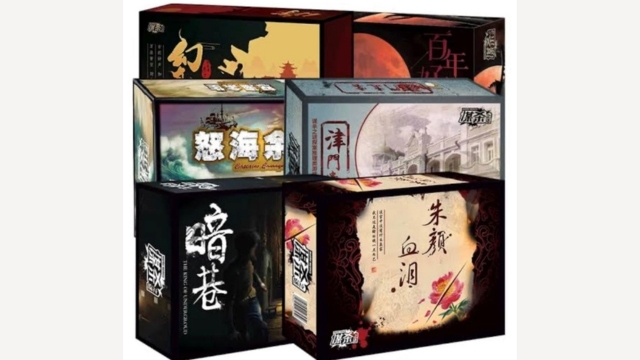After the 2021 regulations, the CCP wants to put the immensely popular offline “script entertainment” games under even tighter control.
by Zhou Kexin


Who is afraid of “Script Killing”? In China, the answer is, “the Chinese Communist Party,” but perhaps non-Chinese readers would not immediately understand what “Script Killing” is all about. It is an offline role-playing game, where players gather and are assigned roles by a professional host based on a script. They should identify and catch a murderer in whodunit performances normally around a table in a room, but also along the streets of their cities, or in public places, as there are endless possible variations.
It would seem inoffensive enough and unworthy of the attention of the CCP—until a small piece of information is added, that “Script Killing” has more than ten million players in China, who fuel a market of hosting services and products worth more than two billion U.S. dollars. Figures become higher if one considers that in addition to “Script Killing” there are many other similar script-based games, creating a huge subculture (and market) of “script entertainment.”
Bitter Winter had already reported in 2021 that such a massive phenomenon had not escaped the attention of the CCP, and authorities had started to regulate it in one of its capitals, Shanghai. Now, a proposed national regulation has been published for comments (our readers know that this pseudo-democratic exercise rarely if ever results in significant changes affecting new laws and regulations as originally drafted), and will come into force later this year.
This regulation follows a familiar pattern: whatever Chinese citizens do, including in their spare time, should be harmonized with “socialist values” and promote the CCP ideology. It should also be strictly controlled, because any seemingly inoffensive activity may become a dangerous opportunity for criticism of the Party and dissent.


Thus, the “Interim Provisions for the Management of Scripted Entertainment” tell us that script-based games are not prohibited, but only if they “promote the core values of socialism.” These games are banned, however, if there is a risk of “endangering social morality, disturbing social order, and undermining social stability.” With an eye to Tibet and Xinjiang, prohibited are also script-based games that may endanger “national unity, sovereignty and territorial integrity.” And obviously it is prohibited to include criticism of the CCP, its present leaders, its past leaders, and its “martyrs.”
Of special interest is that script-based entertainment cannot mention religion in ways that would run counter “national religious policies, or promote xie jiao [banned religious movements] and superstition.” Normally “Script Killing” and its competitors have nothing to do with religion, but the CCP prefers to be on the safer side.
Netizens have noted that, with respect to previous local regulations, this one explicitly states that it is not enough to avoid prohibited content. The scripts should be pre-approved by the Ministry of Culture and Tourism, which should make sure not only that they do not include prohibited content but promote those that would “A) eulogize the CCP, eulogize the motherland, eulogize the people, eulogize the heroes; B) promote the core values of socialism; C) develop an advanced socialist culture, rooted both in revolutionary culture and the excellent Chinese traditional culture; D) build a strong sense of Chinese national community; E) be conducive to the healthy growth of minors; F) promote the development of science education [something that may become a code word for the propaganda of atheism] and the popularization of science and technology; G) promote exchanges and mutual appreciation between Chinese civilization and other civilizations in the world; H) include other content in line with national policies.”
Some media have presented the new regulation as one aimed at limiting the involvement of minors in “Script Killing” and similar games. Provisions about minors are there, but the main aim of the regulation is to crack down on independent script-writing, and convert script entertainment into yet another tool of CCP indoctrination and propaganda.









